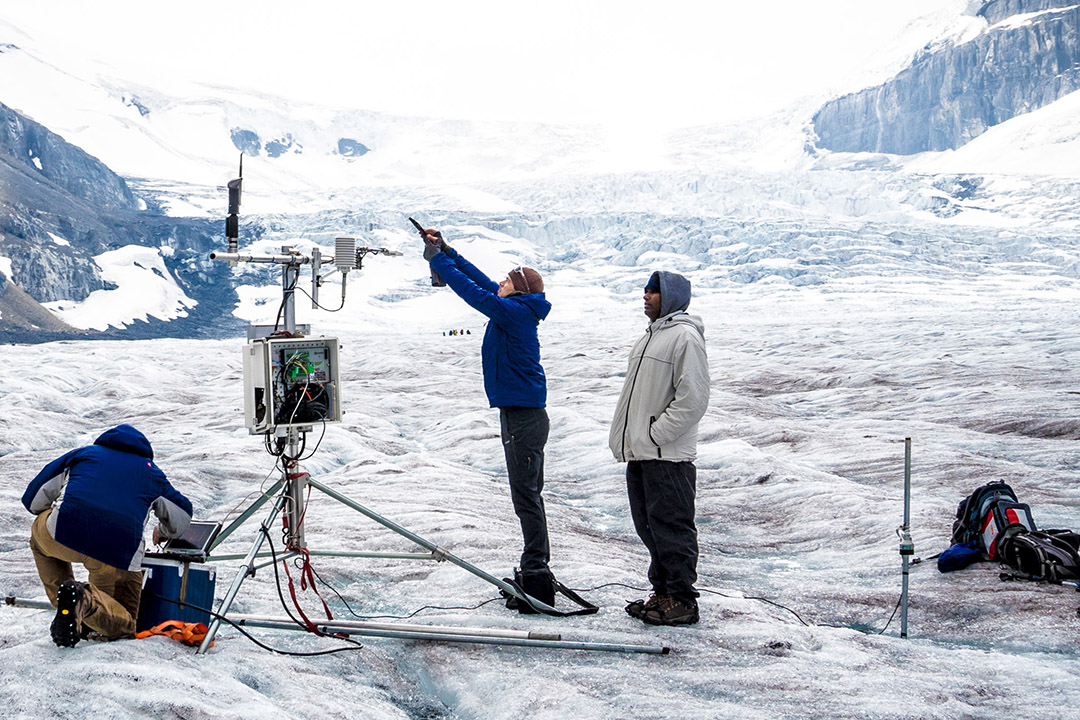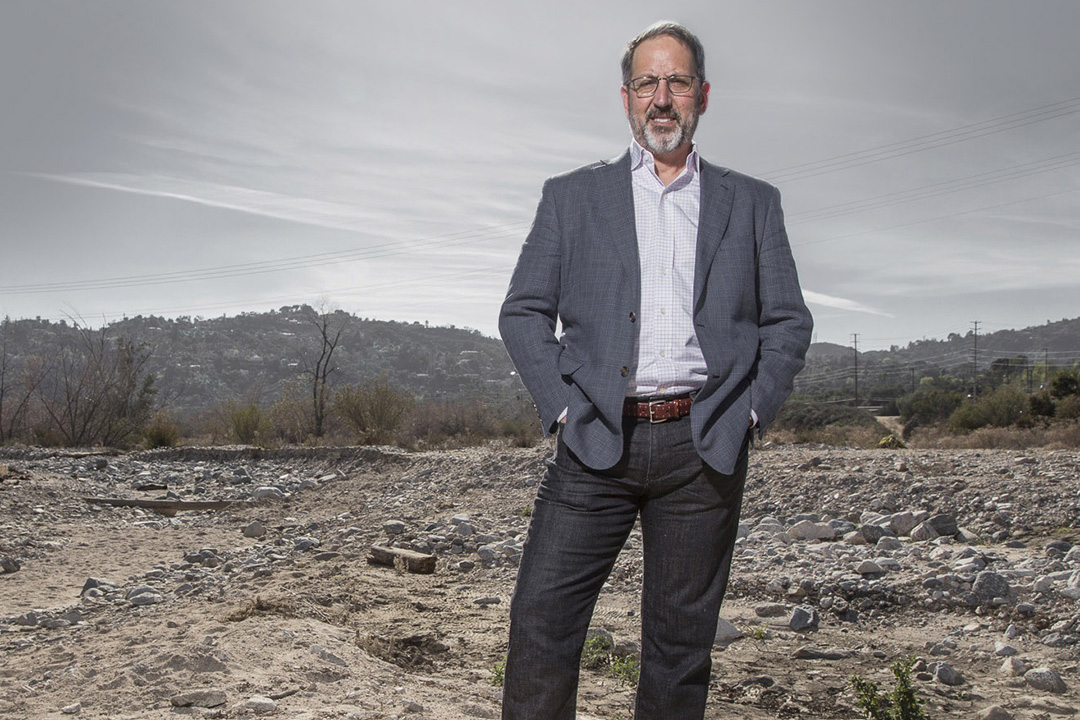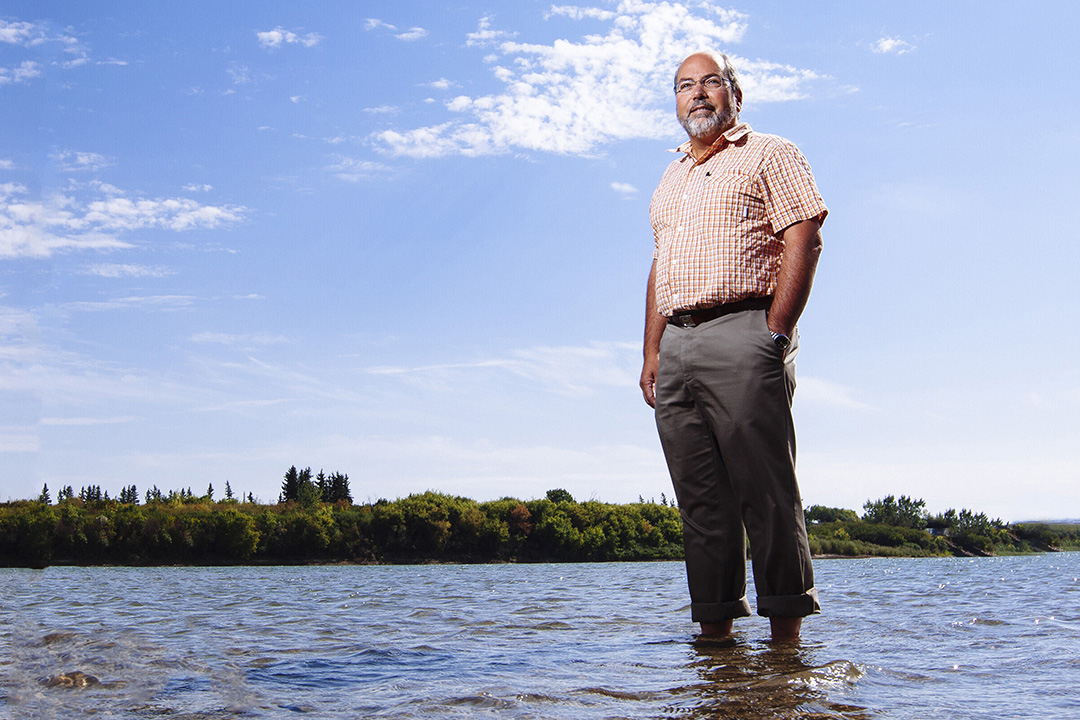
USask a national leader in water research
Global water security could be the biggest environmental challenge of this century. And University of Saskatchewan (USask) scientists are at the forefront of this critical field of research.
By Ashleigh MatternDr. Jay Famiglietti (PhD) is the executive director of the Global Institute for Water Security (GIWS) at USask. His study published in Nature in May 2018 found that by the end of the century, worldwide changes to precipitation will cause widespread resource management issues that could affect up to five billion people.
In other words, the stakes are high.
“We must make a difference with the work that we undertake,” said Famiglietti, a former NASA Jet Propulsion Laboratory scientist who now serves as Canada 150 Research Chair in Hydrology and Remote Sensing at USask. “Canada and the world need us to succeed at what we do.”
Established in 2011, GIWS is at the forefront of water research nationally and internationally. It’s ranked as the No.1 institute for water resources research in Canada and No.18 in the world, according to the Shanghai Academic Ranking of World Universities. Supported by $263.5 million in research grants and contracts, the institute is dedicated to protecting people from flood and drought and finding sustainable ways to manage the world’s water resources.

Solving the world’s water challenges requires GIWS to not only understand the physical, biological and chemical aspects of water, but also the related socio-economics, Famiglietti said.
“I want to understand what role university institutes like GIWS can play in moving the needle on water security in some of the hottest of the world’s water-insecure hotspots,” he said.
The USask-led Global Water Futures program is tackling the socio-economic and political factors that are intrinsically linked to water.
Funded in part by a $77.8-million grant from the Canada First Research Excellence Fund, the GWF program is the largest university-based freshwater research program in the world. There are 39 projects active across the country, including one to create a national flood forecasting system in Canada.
“Canada is the only major developed country not to have a national flood forecasting program,” said GWF Director Dr. John Pomeroy (PhD), the Canada Research Chair in Water Resources and Climate Change at USask.

This is a serious and pressing issue. Pomeroy said flood damages in Canada have been increasing dramatically, doubling and tripling over time. The 2013 Alberta floods and the 2014 Assiniboine River flood caused massive property damage and even deaths.
“If we were able to add a few more days to flood warnings, the loss of life and destruction of property could have been reduced,” Pomeroy said.
Developing a national flood forecasting program is a massive undertaking. GWF has the largest water modelling team ever brought together in Canada and they worked with Environment and Climate Change Canada to host the first national flood forecasting meeting with all provinces and territories.
There is a version of the forecasting system up and running in the Yukon, and models are now being tested in Alberta. They’ll be moving across the country, river basin by river basin. There’s international interest in the program, with the models developed here in Canada already being applied around the world.
Setting aside the challenges of creating a forecasting system for a country the size of Canada, the issues of governance still remain.
“The way we govern water in Canada is rather fragmented,” Pomeroy said.
Provincial governments, the federal government and even Fisheries and Oceans Canada have a say in governance, but Indigenous communities should also be heard and often aren’t, Pomeroy said.
GWF scientists are meeting with officials in Ottawa to recommend changes to the Canada Water Act, which was written in 1970. It doesn’t recognize Indigenous governments, nor does it address the impacts of climate change or mention the role of flood forecasting.
In short, Pomeroy wants to transform Canada.
By 2023, he said he wants to see a functioning national flood forecasting system in place, and Indigenous communities serving as full partners in water management across the country.
GWF received major international recognition earlier this year when it was designated as one of only three regional hydroclimate projects in the world by the Global Energy and Water Exchanges, one of the four core projects of the United Nations’ World Climate Research Programme.
GWF is also actively engaging women in freshwater security research through its Women and Water lecture series. That series looks at the challenges and opportunities facing female water researchers, as well as gendered water-related impacts.
“In many places in the world, women are ... the knowledge keepers and primary water managers,” Pomeroy said. “In many Indigenous societies in Canada, that’s also the case.”
The series also highlights some of the great water research women are doing in Canada, much of which is happening in the GWF program.
“There’s an explosion of scientific information coming out of this,” Pomeroy said.
Open Science Meeting will highlight new research

The Global Water Futures (GWF) second annual Open Science Meeting will bring together researchers from across the country May 15-17 at Saskatoon’s TCU Place.
“This meeting is a chance for us to come together to share, learn, plan and celebrate our achievements,” said Dr. John Pomeroy (PhD), GWF director at the University of Saskatchewan (USask).
Researchers will present their work on topics including climate and hydrology, human dimensions and hydro-economics, and ecosystems and water quality. While the meeting is a chance for GWF researchers to connect in person, it is an open meeting, with community partners and the public invited.
On May 14, a public event at the Roxy Theatre will feature an expert panel discussion on local and regional water issues and how GWF is responding to the challenges. Sharing Indigenous knowledge is also an important part of the meeting, with a half-day event May 15 at Wanuskewin Heritage Park that will include cultural activities.
The GWF Young Professionals, led by president Holly Annand, a USask graduate student, will also host professional development and social events throughout the weekend.

